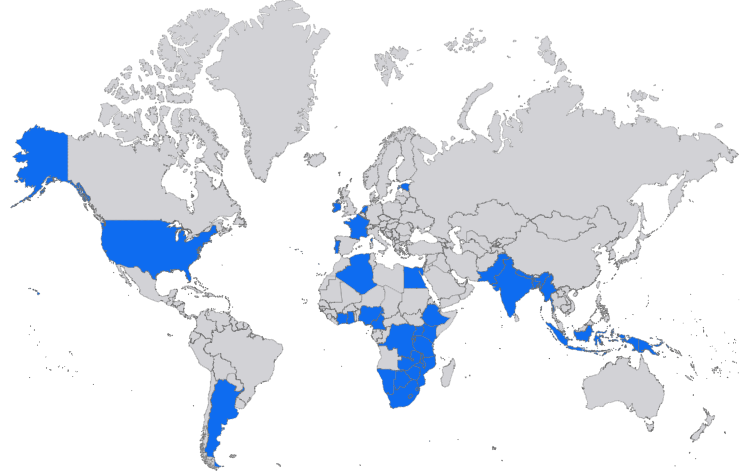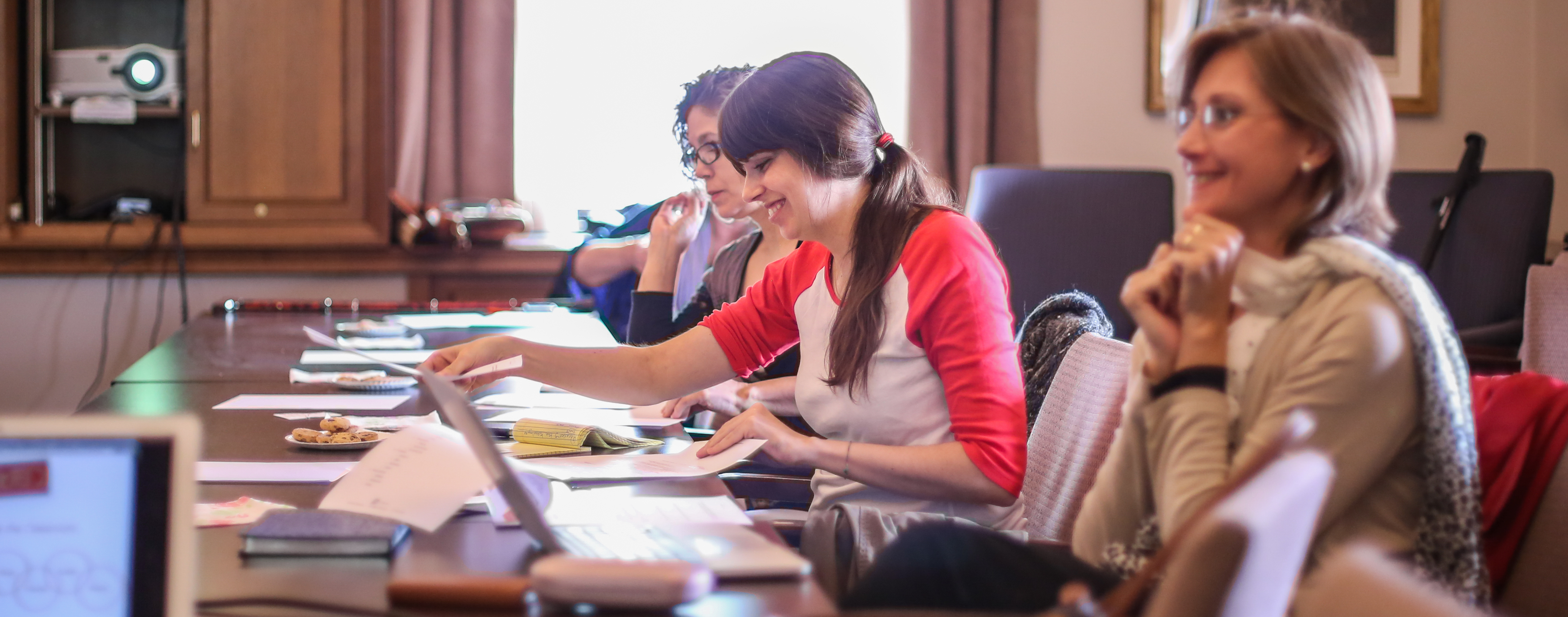Provostial Hybrid Learning Projects at Columbia
In November 2014, over 40 Columbia faculty submitted proposals to redesign their courses using innovative, technology-rich pedagogy as part of a new Hybrid Learning Initiative from the Office of the Provost. Sixteen proposals were chosen to be implemented during the 2015 academic year with grants of up to $20,000 and in-kind support from CCNMTL. Michelle Hall, our Associate Director for Educational Programs, has taken the lead in managing CCNMTL's role in this initiative along with Senior Educational Technologist Michael Cennamo.
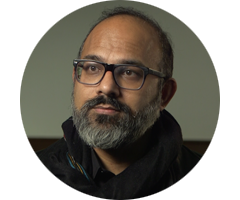
Manan Ahmed
Assistant Professor of History
Last year, in his undergraduate lecture course, Manan assigned digital essays to his students that required them to use Scalar and MediaThread to annotate digital images and architectural designs. This year he is expanding these types of assignments and creating an interactive, geo-spatial seminar for his graduate course, Borderlands.
CCNMTL Support: Aurora Collado, Educational Technologist.
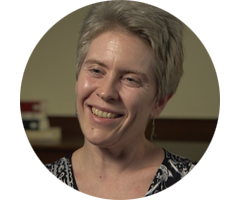
Susan Boynton
Professor and Chair of the History Department
Susan is using digital humanities tools to foster active learning in her Seminar on Historical Musicology. Her graduate students will build open, online exhibitions and other digital presentations of medieval manuscripts.
CCNMTL Support: Andre Laboy, Educational Technologist.
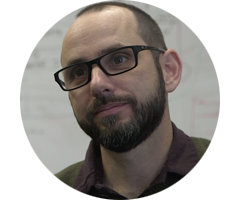
Adam Cannon
Senior Lecturer in Computer Science
Adam is putting together a team of instructors to blend an entirely new interdisciplinary computing course. Computing in Context will teach computational literacy to liberal arts students. Students will watch lecture videos before class, and participate in collaborative assignments online.
CCNMTL Support: Jason Guzman, Educational Technologist.
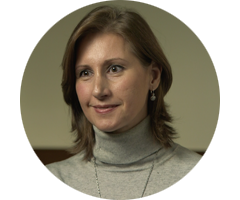
Angelina Craig-Florez
Lecturer in Spanish
With the help of iPads, and an application for generating iBooks, Angelina is redesigning the final project for her course, Spain in its Art. By the end of the course, her students will have created a collaborative iBook with the goal of the students developing a higher linguistic, and cultural competence in the Spanish Language.
CCNMTL Support: Aurora Collado, Educational Technologist.
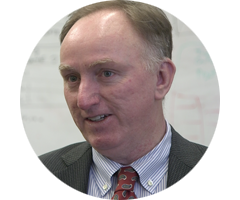
Donald Davis
Professor in Economics
Donald is building a 2.0 version of his course The Economics of New York City with video elements and geo-spatial mapping. He plans to build a video archive of interviews with outside experts and neighborhood tours to allow his students to experience spatial elements in the historical evolution of New York City.
CCNMTL Support: Andrew Flatgard, Educational Technologist.
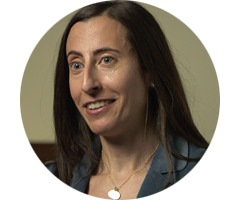
Rachel Gordon
Assistant Professor of Medicine and Epidemiology
Rachel is building on success she has already had using team-based learning and flipped classroom techniques to rework her course on infectious diseases. Her students will form groups to work through clinical scenarios in which they must respond to difficult questions as a cohesive unit.
CCNMTL Support: Angie Lee, Educational Technologist.
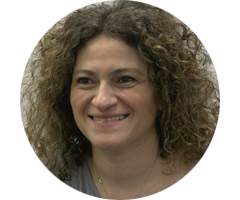
Maya Hastie
Assistant Professor of Anesthesiology
Maya is using blogs, Twitter, and Facebook to disseminate medical information, and evaluate her fellows in Critical Care Medicine (CCM). Working with Daniela Darrah, a colleague in the CCM program, Maya will also create multimedia resources for 10-20 important fieldwork topics.
CCNMTL Support: Angie Lee, Educational Technologist.
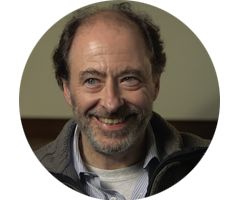
John Hunt
Biological Sciences Professor
John is implementing a flipped classroom model for his first-year and sophomore students in Theoretical Foundations and Practical Applications of Biophysical Methods. He is using Camtasia, and CCNMTL's video production team to produce his lectures and pre-class assignments.
CCNMTL Support: Michael Cennamo, Educational Technologist.
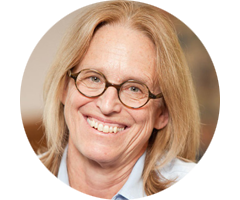
Darcy Kelley
Professor in Biological Sciences
Darcy is having her Frontiers of Science (FoS) students watch lecture videos before class and use Smart Sparrow, an adaptive e-learning tool, to evaluate their learning. FoS is a Core Curriculum course for all Columbia College students.
CCNMTL Support: Paul Stengel, Educational Technologist.
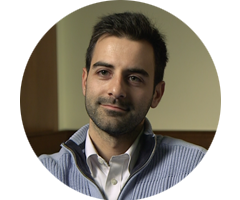
Ioannis Kougioumtzoglou
Civic Engineering Professor
Ionnas is working with Liam Comerford, an overseas PhD student, to customize e-learning software that will help flip his course Random Process in Mechanics. The software, a customized iteration of Comerford’s previous work at the University of Liverpool, will allow students to traverse interactive activity modules with personalized levels of difficulty.
CCNMTL Support: Ellen Maleszewski, Educational Technologist.
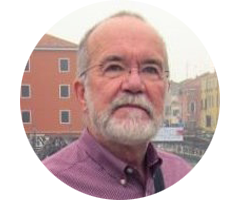
Phillip LaRocco
Adjunct Professor of International and Public Affairs
Phillip is using Wikispaces, Socrative ARS, lecture videos, and pre-class quizzes to flip his graduate course, Energy Business and Economic Development.
CCNMTL Support: Sarohini Chahal, Educational Technologist.
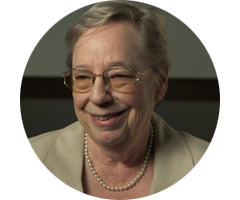
Letty Moss-Salentijn
Professor of Dental Medicine
Letty is beginning an ambitious redesign of the entire didactic course component for third-year students in the College of Dental Medicine. Letty has gathered a teaching team that will use WACOM tablets with Camtasia to produce content in order to flip 4—of 13—didactic course modules.
CCNMTL Support: Angie Lee, Educational Technologist.
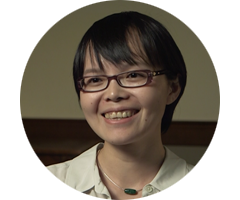
Shaoyan Qi
Lecturer in Chinese
Shaoyan, and her Teaching Assistant Chen Wu, are working with the Columbia Language Resource Center to develop a new way for students in Introductory Chinese A to perfect, and connect, their perceptions of Mandarin tones with their pronunciation. During filmed pronunciation "drill sessions," Shaoyan will be using iClickers to assess student learning.
CCNMTL Support: Paul Stengel, Educational Technologist.
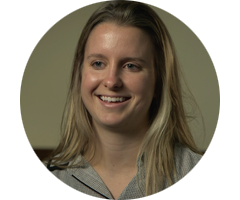
Katherine Reuther
Associate in Biomedical Engineering
Katherine will be using concept mapping tools to immerse her graduate students in biomedical engineering design. She is also using Camtasia, and other video production tools, to record 20 of her lectures in order to flip her class.
CCNMTL Support: Jason Guzman, Educational Technologist.
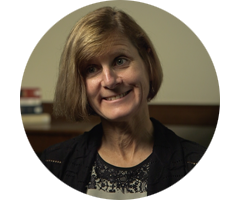
Martha Sliwinski
Assistant Professor of Rehabilitation and Regenerative Medicine
Martha is working with CCNMTL's video production team to produce a series of procedural videos to be viewed by her physical therapy students. She is also using Google Glass with Livestream to broadcast lab sessions. In addition, Martha is exploring the Virtual PT Clinician tool as a starting point for building her own specialized case-studies to teach her students clinical reasoning skills.
CCNMTL Support: Ashley Kingon, Educational Technologist.
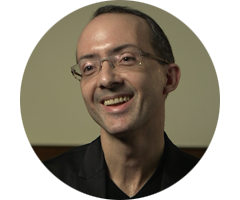
Brent Stockwell
Professor of Biological Sciences and Chemistry
Brent is taking his already-flipped course Biochemistry: Structure and Metabolism and applying web-based, analytical tools to evaluate the effectiveness of team-based science learning.
CCNMTL Support: Michael Cennamo, Educational Technologist.
While many of these projects have only just begun, a second Request for Proposals from the Office of the Provost will be issued later this month. Stay tuned for more news and updates by follow us on Twitter (@CCNMTL), or by joining our mailing list.

 NEWS FEED
NEWS FEED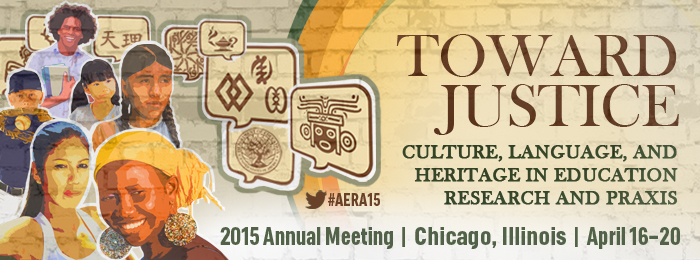

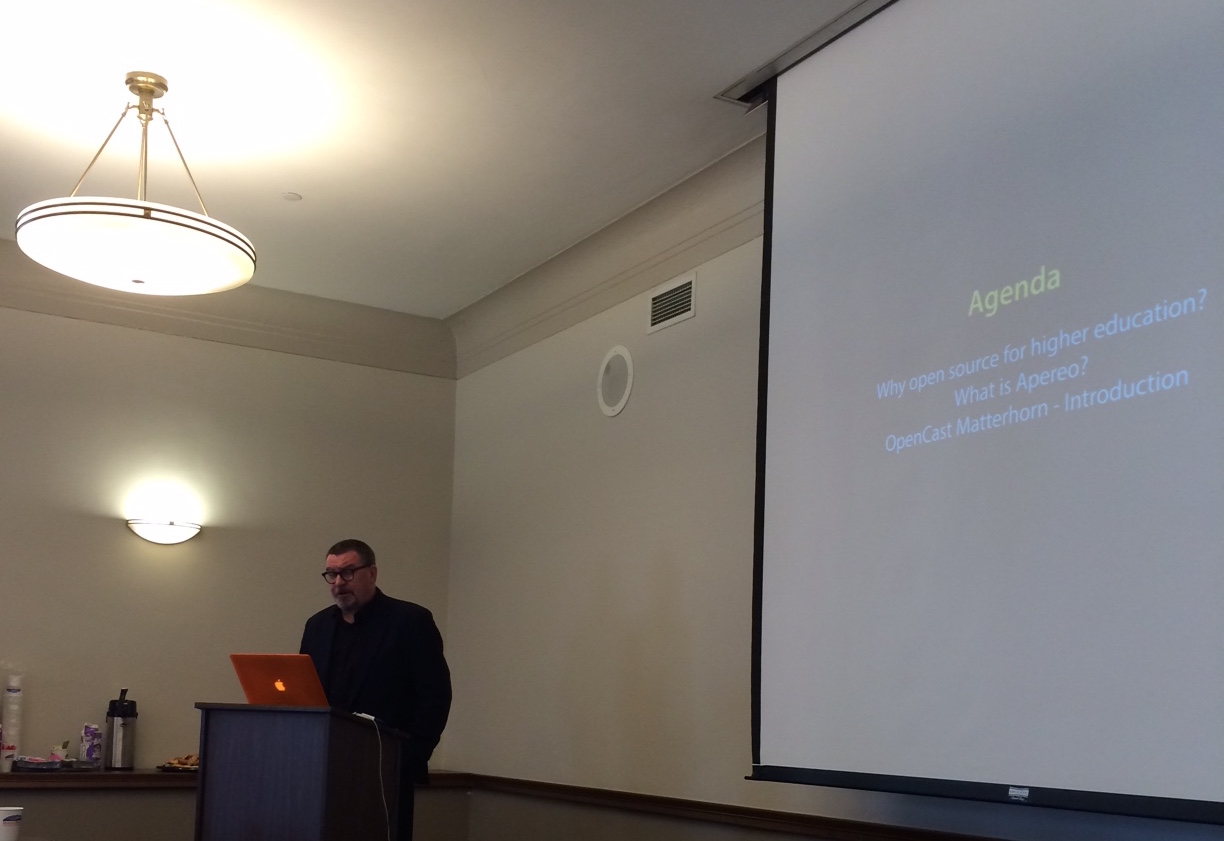

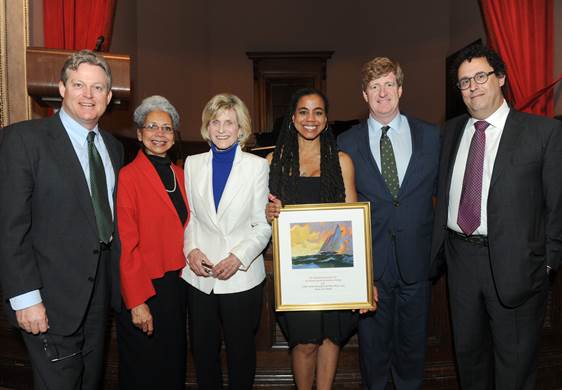
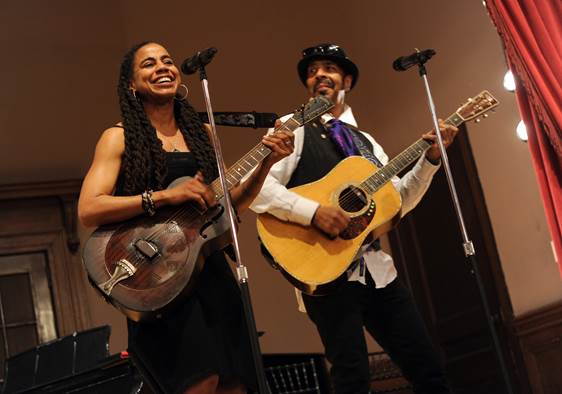
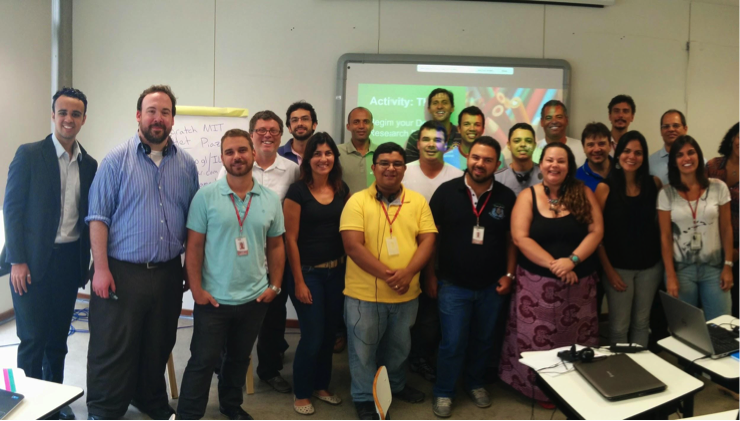
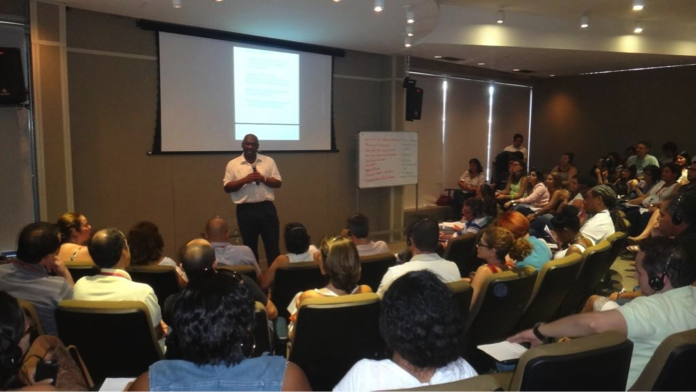
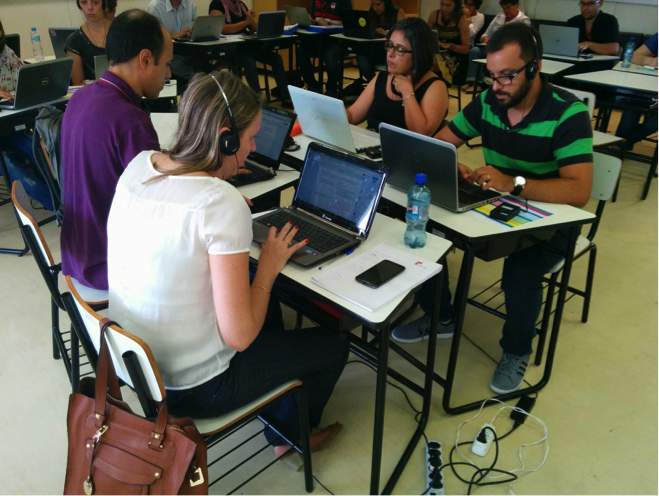
















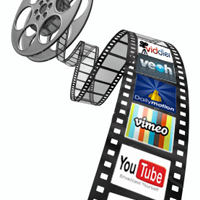 On January 14,
On January 14, 